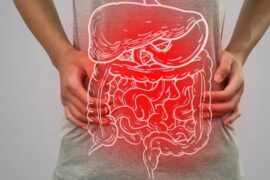Breast self-awareness is a critical aspect of women’s health, and it starts with understanding what is normal for your breasts. Any small changes in the breast, nipple, or underarm area should prompt immediate consultation with a doctor. Health experts advise women to be vigilant about common breast changes, such as persistent, unbearable pain, worrisome lumps in the breast or underarm, constant nipple discharge (especially if it includes blood), breast thickening, swelling or darkening, noticeable alterations in breast size or shape, skin dimpling or irritation, and the presence of an itchy, scaly rash or sore in the nipple area or breast. When such changes are noticed, it is vital to seek prompt medical attention and follow the instructions provided by a healthcare professional to ensure the utmost care for one’s breasts and overall well-being.
Preventing breast cancer is a top priority for many people. While there are no guarantees, several lifestyle choices and strategies can lower your risk. Here are some tips and techniques for a healthier future and reducing the risk of breast cancer:
1. Maintain a Healthy Weight:
Being overweight or obese is associated with an increased risk of breast cancer, particularly after menopause. Maintaining a healthy weight through a balanced diet and regular exercise can help reduce this risk.
2. Regular Physical Activity:
Engage in regular physical activity. Aim for at least 150 minutes of moderate-intensity exercise or 75 minutes of vigorous-intensity exercise per week. Exercise can help regulate hormone levels and reduce breast cancer risk.
3. Healthy Diet:
Consume a diet rich in fruits, vegetables, and whole grains while limiting processed and high-fat foods. Some studies suggest that a diet high in vegetables and low in saturated fats can contribute to a lower risk of breast cancer.
4. Limit Alcohol Intake:
Limit alcohol consumption, as excessive drinking is associated with an increased risk of breast cancer. If you choose to drink, do so in moderation.
5. Don’t Smoke:
Smoking is linked to various cancers, including breast cancer. Avoiding tobacco and secondhand smoke is crucial for overall health.
6. Breastfeeding:
If possible, consider breastfeeding your children. Breastfeeding has been shown to reduce the risk of breast cancer, especially when done for an extended period.
7. Hormone Replacement Therapy (HRT):
Be cautious when considering hormone replacement therapy for menopausal symptoms. Long-term use of combined hormone therapy (estrogen and progestin) has been associated with an increased breast cancer risk. If you need HRT, discuss the potential risks and benefits with your healthcare provider.
8. Regular Screening:
Early detection is crucial. Follow recommended guidelines for breast cancer screening, which may include mammograms and clinical breast exams. Discuss your individual screening plan with your healthcare provider, considering your age and risk factors.
9. Know Your Family History:
Understand your family’s history of cancer, particularly breast cancer. If you have a family history of the disease, you may be at a higher risk, and your healthcare provider can help you determine if additional screenings or genetic testing are needed.
10. Environmental Factors:
Be mindful of environmental factors. Although the link between environmental toxins and breast cancer is still being studied, reducing exposure to harmful chemicals and pollutants can be a proactive step.
11. Stress Management:
Chronic stress may have an impact on overall health, so practice stress-reduction techniques like meditation, yoga, or mindfulness to improve your well-being.
Remember that no single approach can guarantee the prevention of breast cancer, but these strategies can contribute to a healthier lifestyle and potentially reduce your risk. Consult with your healthcare provider for personalized advice and guidance tailored to your specific risk factors and health needs.
Disclaimer:
The information contained in this article is for educational and informational purposes only and is not intended as a health advice. We would ask you to consult a qualified professional or medical expert to gain additional knowledge before you choose to consume any product or perform any exercise.








